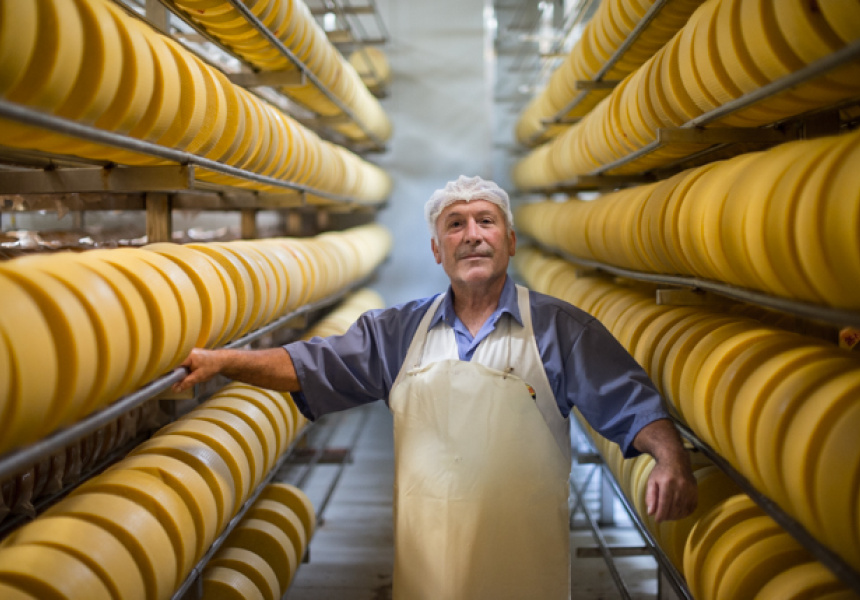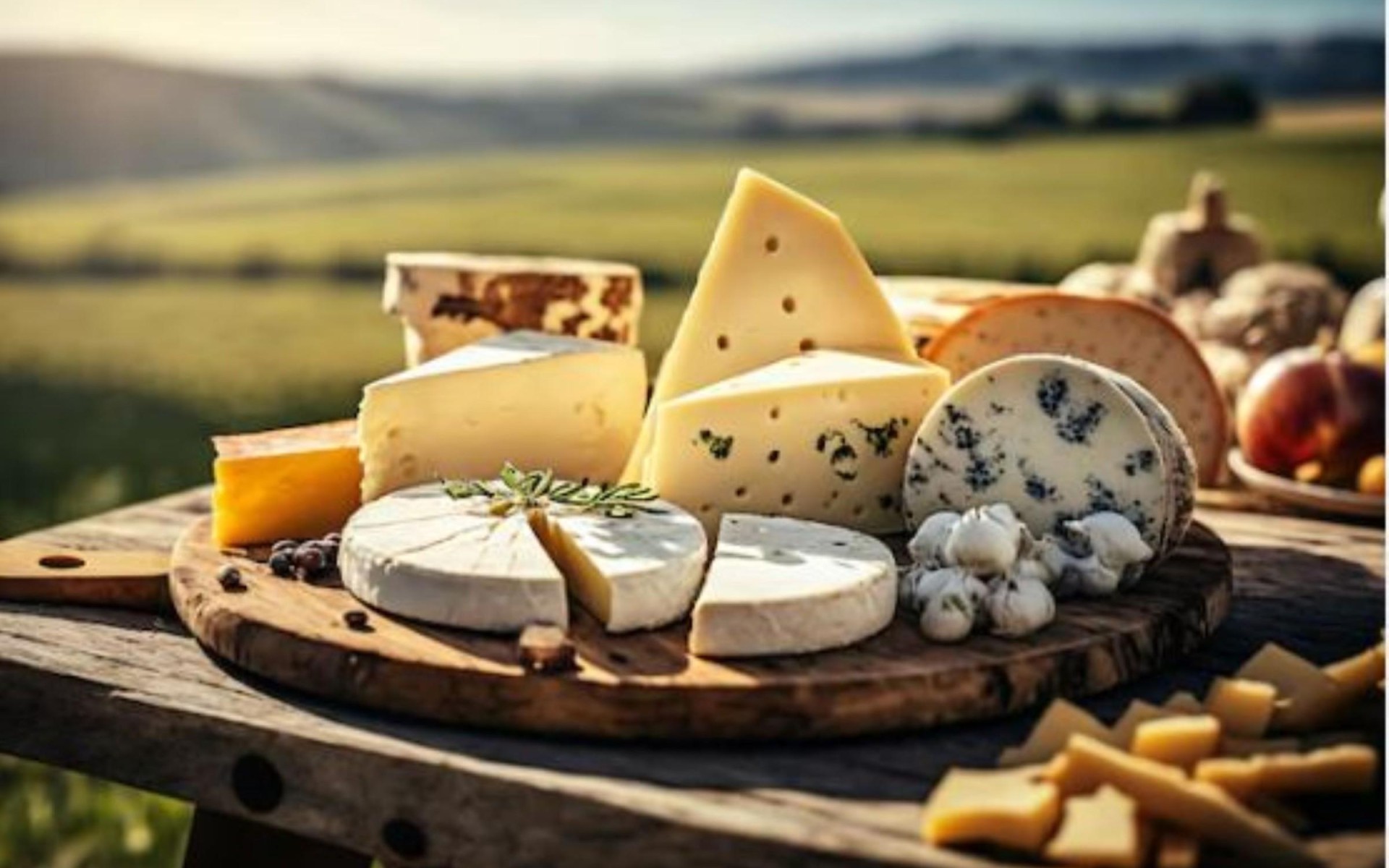Cheese Factory Melbourne: Experience the Art of Cheese
Cheese Factory Melbourne: Experience the Art of Cheese
Blog Article
A Thorough Take A Look At Cheese Manufacturing: Ingredients, Techniques, and the Future of Artisan Cheeses
The detailed process of cheese manufacturing is a fascinating merging of art and scientific research, where top quality milk, rennet, and specific microbial cultures offer as foundational aspects. As the market progressively focuses on sustainability and transparency, the future of artisan cheeses guarantees to reflect both heritage and progression.
Trick Ingredients in Cheese Manufacturing
A selection of important ingredients play a crucial role in cheese manufacturing, each adding to the end product's taste, texture, and character. The main active ingredient in cheese is milk, which can come from numerous sources, consisting of cows, goats, and sheep - cheese store melbourne. The kind of milk made use of significantly influences the cheese's preference and consistency; as an example, cow's milk generally produces creamier cheeses, while goat's milk frequently creates appetizing varieties
An additional important component is rennet, an enzyme utilized to curdle the milk, dividing it right into curds and whey. The resource of rennet can be animal, vegetable, or microbial, each imparting distinct features to celebrity. Cultures, containing particular strains of microorganisms, are additionally essential to the cheese-making process. They ferment lactose right into lactic acid, assisting in taste development and appearance.
Salt not only boosts the flavor however additionally serves as a chemical, preventing the development of undesirable bacteria. Additionally, various flavoring agents, such as natural herbs, spices, or also smoked timber, can be contributed to produce special artisanal cheeses. Together, these components develop the structure of cheese production, setting the phase for varied and rich cheese selections.
Typical Cheese-Making Techniques
Using typical cheese-making techniques, artisans all over the world maintain time-honored techniques that have been given via generations. These techniques commonly emphasize making use of top notch, in your area sourced milk, which is main to the one-of-a-kind tastes and structures of artisanal cheeses. The process usually begins with the cautious heating of milk, followed by the addition of societies and rennet to help with coagulation.
As soon as the curds form, they are cut, allowing whey to drain, an essential action that affects moisture content and texture. The curds are then delicately mixed and cooked to accomplish the preferred suppleness. Afterward, they are drained and pushed into mold and mildews. Salting is a crucial element of this procedure, improving taste while additionally serving as a chemical.
Aging, or affinage, is another essential component, during which cheeses establish their characteristic scents and tastes. Craftsmens may employ particular aging environments, using moisture and temperature level controls to refine the cheese's profile. The dedication to these typical methods not only supports neighborhood economies however additionally adds to the abundant diversity of cheese varieties located globally, celebrating cultural heritage and artisanal craftsmanship.
Modern Technologies in Cheese Manufacturing
Just how have technical improvements changed cheese manufacturing in current years? The assimilation of modern-day technology has actually reinvented both the efficiency and high quality of cheese manufacturing.
Furthermore, advancements in microbiology have actually allowed cheesemakers to select certain bacterial societies and enzymes, optimizing taste profiles and improving life span. Making use of sensing unit innovation for keeping an eye on fermentation problems has also ended up being common, permitting real-time modifications to preserve ideal atmospheres for cheese aging.

These improvements not just boost the quality and sustainability of cheese production however also encourage craftsmen producers to maintain conventional tastes while embracing contemporary performance. As modern technology proceeds to advance, the future of cheese manufacturing looks promising, mixing custom with technology.
The Role of Terroir in Cheese
In the realm of cheese production, terroir plays a crucial duty in defining the unique features of different cheeses. Terroir, a French term why not find out more generally associated with a glass of wine, incorporates the ecological elements that affect agricultural products, consisting of dirt composition, environment, and regional vegetation and animals. In cheese-making, the unique qualities of the region where the milk is sourced can convey certain flavors and appearances to the final product.
For instance, the grazing conditions of dairy pets dramatically affect the milk's composition, influenced by the kinds of turfs and herbs readily available in a specific area. This differs not just between nations but likewise in between regions within the very same nation. In addition, the microbial communities existing in the atmosphere contribute to the fermentation procedures, causing varied accounts in flavor and scent.
Cheeses such as Roquefort, Parmigiano-Reggiano, and Cheddar exemplify how terroir can form their identities, making them distinct and typically protected by geographical signs. As manufacturers significantly recognize the significance of terroir, there is an expanding emphasis on sourcing local ingredients and maintaining conventional practices, ensuring that each cheese really shows its origin.

Future Patterns in Artisan Cheeses
A remarkable shift is happening in the artisan cheese industry, driven by advancing consumer preferences and technological improvements. Increasingly, consumers are moving toward one-of-a-kind, premium items that highlight both sustainability and regional sourcing - cheese shop melbourne. This fad is prompting artisan cheesemakers to introduce, focusing on small-batch production and using conventional methods while integrating contemporary innovation to improve high quality and security
Additionally, there is an expanding interest in plant-based and different milk items, pressing traditional cheesemakers to explore new methods, such as cashew or almond-based cheeses. This shift not only satisfies nutritional dig this restrictions however also lines up with environmental worries concerning pet farming.
Furthermore, openness in sourcing and manufacturing processes is ending up being critical. Consumers are extra informed and demand traceability, prompting producers to adopt clearer labeling methods and involve in narration that highlights their approaches and worths.
Conclusion
In verdict, the detailed procedure of cheese manufacturing combines traditional strategies with contemporary advancements, leading to a varied variety of tastes and textures. The focus on top quality ingredients and the influence of terroir more info here emphasize the creativity associated with cheese manufacturing. As the market evolves, an emphasis on sustainability and openness will likely shape the future of artisan cheeses, providing to a progressively critical customer base that values authenticity and craftsmanship in milk products.
Report this page